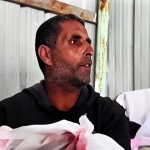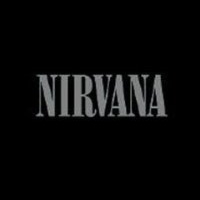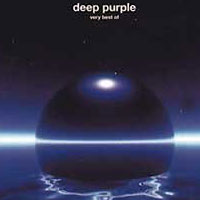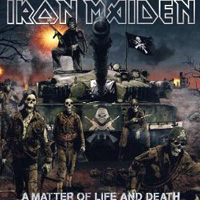Great Modern Drummers
Dave Grohl
Dave Grohl (14th January 1969) is most famously known as the front man for stadium rockers The Foo Fighters. Having started his musical career as a drummer, Dave played in a string of Washington based bands without making a real break through to a global audience. But this would soon come when Grohl, in 1990 became the drummer for grunge group Nirvana. Although taking a back seat to the seminal styling of Kurt Cobain, Dave would feature on some of the definitive tracks to come out of America in the 1990’s. Upon its release, Nirvana’s second album ‘Nevermind’ exceeded all expectations and became a massive hit. Illuminating the band as a global success. Singles like ‘Smells Like Teen Spirit’ and ‘Come As You Are’ made the band a household name almost overnight. Seemingly destined on a path of destruction, Grohl’s demons of fighting with his status in the band grew from early on.
While his drumming style was a significant element in the band’s success, Grohl saw himself as just another in a long line of drummers. In his mind, Nirvana was the band that recorded Bleach; his arrival had altered that sound dramatically, and, as he saw it, not necessarily in a positive way. Though Grohl had been writing songs for several years, he declined to introduce his songs to the band for fear of altering the unique chemistry the band had. Instead, Grohl compiled his songs and recorded them himself, releasing a cassette called Pocketwatch in 1992 on indie label Simple Machines. Rather than using his own name, Grohl released the cassette under the pseudonym ‘Late.’
‘In Utero’ followed for Nirvana in September 1993 and was to be their third and final album release. Dave Grohl again played drums and recorded backing vocals and although apparently the album wasn’t a hit with the label, the fans disagreed. Reaching number one in both the UK and US album charts, the album picked up where ‘Nevermind’ left off. Singles included ‘Heart Shaped Box’ and ‘All Apologies.’
On April 5th, 1994 tragedy struck for the band when the pressures of fame took a fatal toll on Nirvana’s front man, Kurt Cobain. Committing suicide the band had no option but to go their separate ways.
Dave Grohl naturally found himself unsure of what to do after the death of Cobain. Fleeting stints playing with Tom Petty and the Heartbreakers and Pearl Jam ended and Grohl decided to record on his own. After laying down a 15 track demo and wooing attention form Capitol records, Grohl then went on to form the Foo Fighters, a group in which he sings and plays guitar. The bands popularity has grown and The Foo Fighters are now in their own right a globally recognised rock band. With six albums released and a string of hit singles Dave Grohl has made the perceived possible leap career wise after the tragic death of Kurt Cobain and Nirvana.
In May 2006, Grohl sent a note of support to the two trapped miners in the Beaconsfield mine collapse in Tasmania, Australia. In the initial days following the collapse, one of the men requested an iPod with Foo Fighters album In Your Honor, to be sent down to them through a small hole. Grohl’s note read, in part, “Though I’m halfway around the world right now, my heart is with you both, and I want you to know that when you come home, there’s two tickets to any Foos show, anywhere, and two cold beers waiting for yous. Deal?” In October 2006, one of the miners took up his offer, joining Grohl for a drink after the Foo Fighters acoustic concert at the Sydney Opera House. Grohl wrote an instrumental piece for the meeting, which Grohl pledged he would include on the band’s next album. The song, titled “Ballad of the Beaconsfield Miners,” appears on the Foo Fighters’ latest release Echoes, Silence, Patience & Grace, and features Kaki King.
Ian Paice
Ian Anderson Paice (born 29 June 1948) is an English musician, best known as the drummer of the seminal rock band Deep Purple. As of Jon Lord’s departure in 2002, he is the only founding member of the band still performing with the group. Ian Paice got his first kit at 15. He began his professional career in the early 60s playing drums in his father’s dance band. The first band he was in was called Georgie & the Rave-Ons, which after being renamed for The Shindigs released first singles featuring 17-year old Ian Paice. In 1966 Paice joined The MI5, which soon changed its name to The Maze and produced a number of singles, recorded mainly in Italy and France. The band featured Rod Evans who alongside Paice was to form the original line-up of Deep Purple in February 1968.
During this time Ian Paice was also heavily involved in doing sessions for various artists from the stable of the famous 60s producer Derek Lawrence. Paice was ranked by Rolling Stone magazine as the ninth greatest drummer of all time. He is one of the few well known left-handed drummers. After Deep Purple split, Ian Paice went on to form a new supergroup, Paice, Ashton & Lord in 1976. The band, comprising also singer/pianist Tony Ashton, organist Jon Lord, guitarist/vocalist Bernie Marsden and bassist Paul Martinez recorded one album, Malice in Wonderland and they played only five live shows. It was put on halt in 1977, halfway through recording the group’s second album. They broke up because Tony Ashton only liked to play live shows in little clubs.When they going to be more famous, they played in bigger venues. Tony Ashton only felt home himself in little clubs. Jon Lord and Ian Paice though that they just tearing apart Tony Ashton and they decided to break up in 1977.
In 1979, Ian Paice was asked by David Coverdale to join Whitesnake on the Japanese Tour for the Lovehunter album in 1979. He stayed with the band for the next three years. He appeared on the Whitesnake albums Ready an’ Willing (1980), Live…in the Heart of the City (1980), Come an’ Get It (1981) and Saints & Sinners (1982).
This incarnation of Whitesnake also featured Jon Lord which meant three members of the Mark III lineup of Deep Purple were in Whitesnake during this period. Following musical differences with David Coverdale, Ian Paice left Whitesnake in 1982.
Nicko McBrain
Michael Henry “Nicko” McBrain (born June 5, 1952) is an English musician, best known as the drummer for heavy metal band Iron Maiden, which he joined in 1982. The nickname ‘Nicko’ originated from when the keyboard player Billy Day introduced him as “My Italian drummer, his name’s ‘Nicko’”. McBrain himself states that as a child he had a stuffed animal (bear) named “Nicholas” that he always carried with him so much so that his parents began calling him Nicky also. Only when he may have been in trouble was he called by his given name. McBrain is credited as being an early pioneer of the heavy metal sound and passes his experience on through drum clinics.
McBrain is frequently included in top drummer league tables and rankings as a result of his very influential and skillful performances in studio and on stage, as illustrated in Rolling Stone’s 100 Greatest Drummers Of All Time, where McBrain was placed at No. 38. In Total-Drums’ 100 Best Rock Drummers Ever, McBrain was placed at No. 28, and similarly well ranked in EveryDrummer.com’s Top 50 Drummers Of All Time, where he was at No. 26. Recently, he has been ranked at No. 18 in Rhythm Magazine’s 50 Greatest Drummers Of All Time.
Known for his affable joking personality, eagerness for interviews and public appearances, McBrain is considered by his bandmates as Iron Maiden’s spokeperson.
|
|

|

The Bombay Bicycle Club |
LATEST GALLERY IMAGES

The Invisible Enemy 
Roland Garros |
|
|




